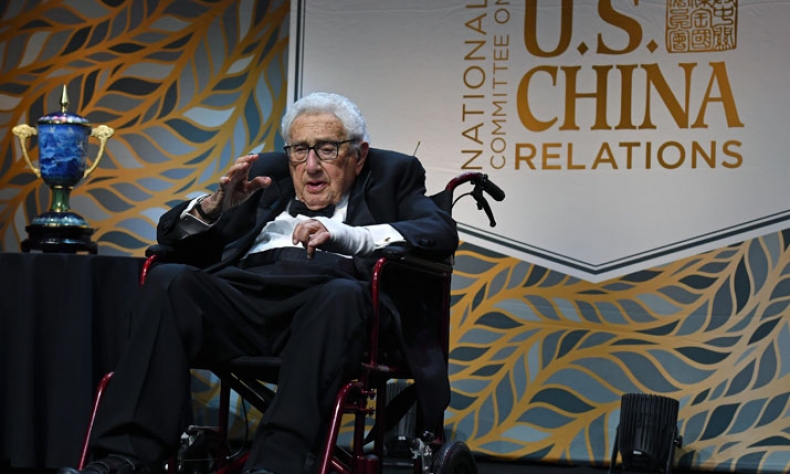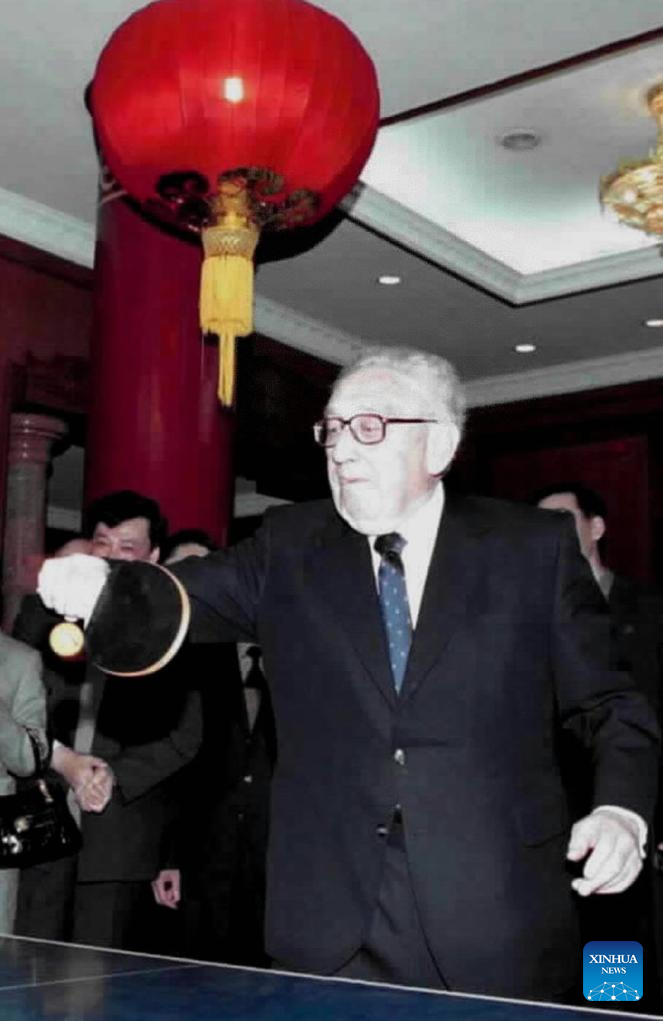Henry Kissinger: the Legend, the Legacy

With Kissinger gone, the world has one fewer person who can exercise some influence on both Chinese and American leaders. What he leaves behind is not just legendary experience. It is also his wisdom in balancing the world order.
Dr. Henry Kissinger, former U.S. Secretary of State, on November 29 passed away at his home in Connecticut at the age of 100.
On the other side of the Pacific, many Chinese felt a sense of loss and sadness when they learned of his death.
The centenarian last visited China on July 19. At Villa 5 of the Diaoyutai State Guesthouse, where Kissinger met with Chairman Mao Zedong during his secret trip to China 52 years ago, President Xi Jinping welcomed him with a banquet, noting that Kissinger had just celebrated his 100th birthday and had made more than 100 visits to China over the years.
“We never forget our old friends and your historic contributions to promoting the growth of China-U.S. relations and strengthening the friendship between the two peoples,” Xi said.
A feel for power
In July 1971, as national security advisor to U.S. President Richard Nixon, Kissinger secretly flew from Pakistan to Beijing. This ice-breaking trip led to Nixon’s historic visit to China the following February. This chapter has been written into history books.
And so, many Chinese will be able to tell you a few anecdotes about Kissinger’s landmark visit, like how he forgot to bring a change of clothes due to time constraints and had to borrow a shirt from his assistant to meet with Mao. The authenticity of these stories may not be 100 percent certain, but the Chinese admiration for Kissinger undoubtedly is.
What most people in China don’t know, however, is that the veteran diplomat’s efforts throughout his life were not limited to starting the process of normalizing China-U.S. relations.
As one of the most famous and powerful diplomats in American history, he defused tensions in the 1970s between the U.S. and the Soviet Union; he conducted “shuttle diplomacy” to separate Israeli and Arab forces after the fallout from the 1973 Yom Kippur War; in 1973, he signed the Paris Peace Accords to end the Viet Nam War… But at the same time, he was a controversial figure in the U.S., accused of being responsible for the decisions to conduct a secret four-year bombing campaign in Cambodia from 1969 to 1973 and overthrow the democratically elected government of Salvador Allende in Chile in 1970.
In what perhaps may have been the best-selling biography of the former U.S. secretary of state, Kissinger: A Biography, first published in 1992, noted biographer Walter Isaacson wrote that Kissinger “had an instinctive feel for power and for creating a new global balance that could help America cope with its post-Viet Nam withdrawal syndrome. But it was not matched by a similar sense of the strength to be derived from the openness of America’s democratic system, or of the moral values that are the true source of its global influence.”
Kissinger was known for his practice of “realpolitik”–engaging with the world based on practical objectives rather than moral ideals. In both his diplomatic activities and his lifelong beliefs, he seemed to always put the realization of U.S. national interests first.

All about balance
Although Kissinger was seen as a staunch defender of American interests, this did not prevent China from considering him a friend.
From the Chinese point of view, countries with different social systems can work together when and where possible and manage their differences in areas where competition is necessary.
Kissinger always said that China’s rise was inevitable and that the U.S. should treat China with a more positive and inclusive attitude. “No matter how difficult it is, both sides should treat each other as equals and maintain contact. It is unacceptable to try to isolate the other side.”
During his final visit to China, Kissinger once again expressed these hopes for the China-U.S. relationship during a meeting with Wang Yi, a member of the Political Bureau of the Communist Party of China Central Committee and China’s Foreign Minister.
With Kissinger gone, the world has one fewer person who can exercise some influence on both Chinese and American leaders. But the fact that the diplomat was a man who reshaped the world in his own way remains. What he leaves behind is not just legendary experience. It is also his wisdom in balancing the world order.
In 1957, Kissinger’s book Nuclear Weapons and Foreign Policy was officially published, establishing him as an authority on U.S. strategic policy. He emphasized the devastating consequences of nuclear weapons and the importance of maintaining strategic balance in international relations.
In The Necessity for Choice: Prospects of American Foreign Policy, published in 1961, Kissinger systematically outlined his diplomatic ideas, emphasizing the central place of national interests and national power in international relations.
These two books were translated into Chinese and published in China in the 1970s. A 20-something Xi was one of their readers.
In the last few years of his life, Kissinger continued to write books and published opinion pieces in newspapers and magazines.
On October 24, he spoke at the annual Gala Dinner of the National Committee on U.S.-China Relations in New York City. “Today, they might seek a concept not of security, but of co-evolution, in which two big societies can exist side by side, occasionally pursuing different objectives, but merging them in a common perception of the necessities and of opportunities that are the imperative of our age.” These are a few lines from his last public speech.
 Facebook
Facebook
 Twitter
Twitter
 Linkedin
Linkedin
 Google +
Google +










